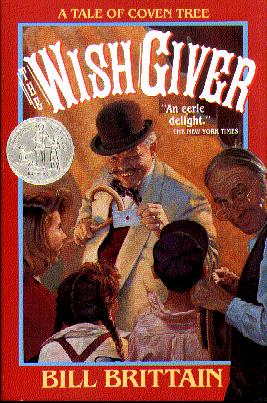I detest being lied to, I really do. Worse, I sometimes can’t tell when I’m lied to. Take the following case in which a tenant spun fanciful stories I found all too believable. Eventually, her tales grew so fantastic, they gave even me pause. The fact women could see through her when I couldn’t gave me greater appreciation. It’s undoubtedly the reason female defendants prefer all-male (and very gullible) juries.
Come to think of it, I had a problem with a previous tenant, a stripper who’d wrap males around her little finger. Those problems came to a close when a female deputy, immune to her abundant charms, took her in hand.
Meanwhile back at the ranch, I discovered my internal lie-detector is broken.
 |
| Typical Landlord |
The Never-Ending (First) Storey
After 22 months, I’ve finally succeeded in an eviction. Almost… the deputy hasn’t yet executed the Writ of Possession, so it’s still possible the tenant may pull off another coup.
Part of it’s my own fault– I was out of state for lengthy periods. The tenant fought vacating the property with everything she had. I’d been contracting kitchen and bathroom renovations– new oak cabinets, new granite counters renters might find hard to damage, and new flooring. This coincided with Hurricane Irma (life in Florida’s defined by hurricanes) when subcontractors proved hard to find.
Peculiarly, replacing cabinets and counters requires four distinct kinds of workmen and ne’er the twain shall meet. Cabinet installers won’t work with wiring, plumbing, or (shudder) cabinet tops. The granite and marble people won’t touch electrical, plumbing, or God forbid, cabinets. Needless to say, electricians and plumbers don’t handle the other stuff either.
The tenant disliked that I was permanently removing the garbage disposal, a practice I began long ago in response to abuse by renters. Mats of hair and buckets of bacon grease don’t work well inside pipes… and disposals. Tenant insisted a garbage grinder, along with air, water, and cable television, constituted an essential human right.
We also underwent a conflict with the dishwasher. I don’t know why, but more than one tenant eschews using dishwashers. The machines need to be used every week or so to keep seals moist and the mechanism working. In this case, the tenant wanted to store dishes in her machine and complained about water pooled around the central pump.
I explained that was normal; she disagreed. She argued it was a health hazard. What might happen, she said, if water should leap out on the floor. I know, I know– weird, huh. I stated I’d much rather she follow the terms of the lease by changing air conditioning filters once a month so our new a/c wouldn’t break down and maybe dump water on the floor.
As the lease was expiring, new cabinets went in, new counters went in, wiring was finished, and new plumbing… never happened. Plumber A reported he tried several times to schedule an appointment and she refused. Plumber B reported he tried several times to schedule an appointment and she refused. WTF? as the blogger wrote.
 |
| Typical Tenant Victim |
Hook, Line, and Sink
Most strangely, the original kitchen sink and its new faucet went missing. Oh, said the tenant, the cabinet people put it on the curb for trash pickup. WTF? The tenant claimed installers wouldn’t put discarded cabinets on the curb, but they specifically toted out the sink they were supposed to reuse?
We wouldn’t do that, said the cabinet folks. We wouldn’t do that either, said the granite people. Both said the tenant told them
not to reuse the sink and faucet.
Belatedly sensing I’d been lied to, I asked the tenant if her boyfriend/caretaker took the sink and faucet for his flea market business. Lo, a miracle happened. Said boyfriend found a matching sink complete with identical faucet on a neighborhood curb and brought it home, too late, of course, to be inset and sealed by the counter workmen.
Trashing in Public
The homeowner’s association complained about junk in the front yard. The cabinet installers said the tenant told them not to put the old cabinets and refuse on the curb. Once again, WTF?
The tenant told me HUD Section 8 called in her friends in Code Enforcement, aka the decorating police. That seemed peculiar since the house recently passed inspection predicated upon finishing the plumbing.
The tenant told me the electric company turned off the power because her electrical cords were sparking, and oh yes, she needed new light bulbs. I explained I kindly replaced bulbs during my visits, but electrical cords, light bulbs, and taking out the trash were the tenant’s responsibility, as explained in the lease. The tenant disagreed.
In fact, the tenant disagreed so much she stopped paying rent. Ma’am, I said, you can’t live here if you don’t pay rent. The tenant disagreed.
The tenant announced because I’ve been such a bad landlord, light bulbs didn’t work, the electrical cord for her television didn’t work, the garbage disposal didn’t work and, thanks to unfinished plumbing, the kitchen sink didn’t work. Oh, and according to her, Code Enforcement was coming after me for all of the above plus piles of trash in the yard.
“You try make me move,” she said. “I own your ass. My friends want me sue you,” she said, “but I tell them you’re a nice man. Bad landlord, but nice man.”
Tenant for months refused to take my calls. Tenant also refused the property manager’s calls. The property manager, a wise woman I trust, told me the tenant had been lying her ass off to me.
I posted 3-day pay or vacate notices and 7-day notices to cure. The latter included an extensive list of property and lease violations, much of it related to her boyfriend/caretaker wrecking the back yard and cutting down trees from a lovely grove to further his lawnmower, appliance, and car engine repair business.
 |
Typical Code Enforcement Officer
Dennis Rader |
Tenant complained I’m such a bad landlord, the air conditioner no longer worked. She claimed Section 8 yet again called in Code Enforcement because shower heads went missing. Likewise, electrical switch plates someway disappeared. A tiny corner of linoleum under the cabinets’ kickplate curled ever so minutely, constituting a dastardly dangerous hazard to life and limb. If I took her to court, she said she’d bring Code Enforcement, whom mortals fear more than Lord Voldemort on a bad hair day.
As a landlord, as a male, I’ve learned to be leery. My reasons not to visit an XX chromosome tenant alone are a little different from persnickety Mike Pence’s, but it pays to be cautious. This time I took my friend Geri. After that meeting, she said, “I’m too much of a Southern lady to say she’s lying, but she doesn’t have a Godly relationship with the truth.”
For the first time we learned Section 8 was paying for another apartment in a nice downtown building while the tenant simultaneously hung onto my property with all her devious might.
I’d divined two reasons the tenant refused to move. She’d piled the house full of her treasures from hoarding. The living room housed a half dozen washers and dryers from her boyfriend’s business, suggesting another primary reason for clinging to the property. Where could he house and practice his lawnmower and appliance repair business?
Geri, a teacher, figured out a third and possible principal reason. By keeping my address, the tenant was able to keep her girls in the well-regarded school next door, and not send them to the inner city school that went along with her new apartment. In Florida, enrolling children in schools outside the tax district is considered fraud.
The property manager, calling from a different phone number, made one last stab at getting the tenant out, specifying a cutoff date. The tenant refused but, armed with the our target date, phoned me the morning of.
“Are you really going to court today?”
“This afternoon, yes, I am. You have a final chance to leave quietly.”
Unsurprisingly, she declined, but phoned me minutes before I departed for the courthouse.
“I slipped and fell. The lawyers for the clinic want an initial $50,000 to treat me.”
“What? Where? How did you fall?”
“In the kitchen, that curled piece of linoleum.”
“How could your toe reach it? It’s under the cabinets. Did a seizure cause the fall? Wait… Lawyers for the clinic? Don’t you have Medicare or Medicaid?”
“Yes, but I no use it for this. I need $50,000.”
“Convenient it happens on the day I file the paperwork.”
“Did I say today? I mean recently, since I saw you last.”
“After you were asked to leave?”
“Um, maybe a year ago, yes, that’s it. You know my seizures cause memory problems.”
“Last year after your lease expired and you were supposed to move out?”
“I mean two years ago, yes, two years.”
Instead of filing that day, I made an appointment to see a lawyer. He said dryly, “A surprising number of slip ’n’ falls happen during evictions. If she persists, come back and see me.”
A-Courting We Will Go
Finally, I spent a small pot of money to fund the eviction in court. The clerk of court’s rules lay out four requirements a tenant must follow to contest an eviction.
My tenant did none of them.
Instead, she wrote a 37-page letter to the judge that was shielded from public view (including my own) under a lock called VoR… view on request. That meant I had to execute a number of steps including a notarized affidavit and then wait for the clerk to determine if I was a deserving lad allowed to read it. When I finally found I could peep at it, all I could download was the first page. (The judge later kindly explained the remaining 36 pages were made up of letters and notices from various government agencies.) Curiously, that first page contained yet another version of the slip ’n’ fall, this time in the bathroom on a wet floor caused by a missing shower head.
At the end of page 1, the tenant advanced an innovative argument that the landlord owes her money for taking care of the property for him.
The morning of the hearing, my friend Thrush suggested I drive by the property to photograph the tenant’s trash. To my surprise, a white cargo van and a large trailer sat parked in front, doors open for loading. Another friend snapped photos for me.
With friends and witnesses, Darlene and Geri, I girded loins and set forth to wage righteous battle in the courthouse.
I hardly said a word. I didn’t need to.
The judge was a smart lady, very, very astute. She asked the tenant and her boyfriend/caretaker if they still lived at my rental address.
The tenant said no, she’d moved to a new apartment paid for by Section 8. The judge cocked an eye at me.
I said, “As we speak, Judge, a cargo van and extended trailer are loading goods from the house. I brought photos.”
The tenant hadn’t expected that. Quite unconscious of her previous contention, she proceeded to justify why she still lived at my address, mainly that I was a bad landlord but, she insisted, she didn’t live there.
“Did you give the landlord the keys?” asked the judge.
“No, I changed the locks. He’s a bad landlord. He won’t take our trash to the curb and…”
Time and again, the judge brought her back to the subject at hand. “So you do live there?”
“No, Your Honor, I just stay here so my girls can go to school. I keep it as my residence.” (Geri nailed the student residency issue.) “And Mr Leigh complains about our cutting trees down and he don’t want my boyfriend, I mean caretaker, working no more on cars and lawnmowers and he no fix my light bulbs and plumbing and he took away my disposal and I slip on the wet kitchen floor and I no wear my arm sling in public but I hurt my wrist and no use my Medicare so I call Code Enforcement who say he’s a bad landlord and…”
The tenant had just told yet another version of slip ’n’ fall. I wondered if the judge caught the differences between her testimony and the version she gave the judge in the letter. I need not have worried.
“Stop.” The judge gave the basketball timeout T-signal. “I find you do live there.”
“No, Your Honor, He’s mean to say that. I only…”
“Stop right there. I’m granting the plaintiff a Writ of Possession.”
“How long does that give me before I must move, Your Honor?” asked the tenant.
“Once a deputy executes it, you have 24-hours to depart.” With the upcoming weekend plus assignment to a deputy, the tenant had a few days grace period.
The unhappy tenants departed.
As I packed up, the judge leaned to the clerk and said, “That woman lied from the moment she opened her mouth and never stopped. I hate being lied to.”
Damn, every woman sensed her lying. Score: Women 6, Leigh 0. I’m not a bad landlord, but I am a terrible lie detector.
Oh, wanna buy a house? Sandwiched between two schools, it’s a great rental unit.

































